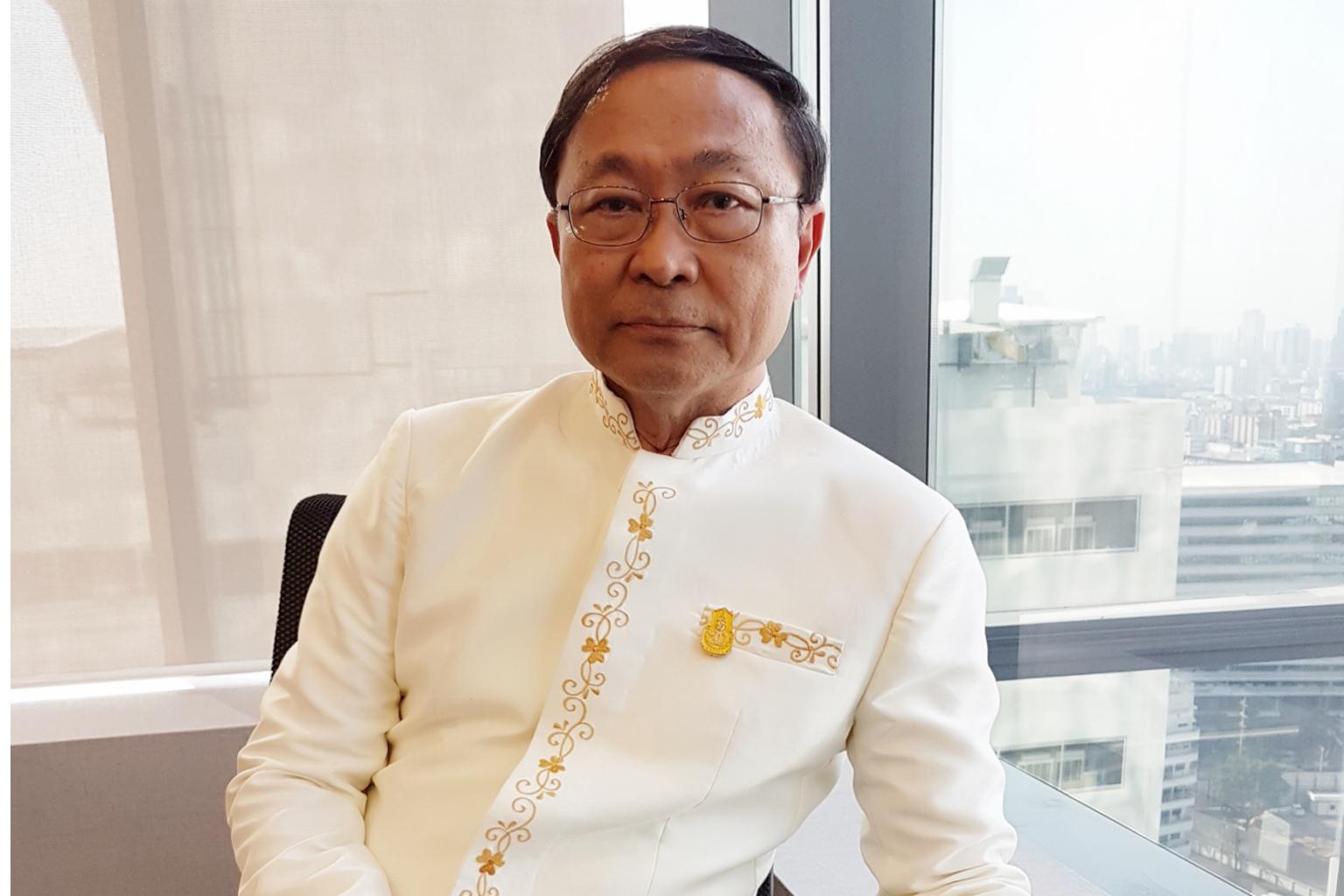Cashless welfare cards, free Internet may yield data to improve Thai governance
Sign up now: Get insights on Asia's fast-moving developments

Both schemes are expected to yield data to help improve policy as Thailand strengthens its digital infrastructure, said digital economy and society minister Pichet Durongkaveroj.
ST PHOTO: TAN HUI YEE
Follow topic:
BANGKOK - Machine-readable welfare cards replaced cash payouts last year (2017) when the Thai government revamped its aid for some 11 million poor people.
Free broadband Internet access was also given to 24,700 remote villages as part of a larger effort to wire up far-flung parts of the country.
Both schemes are expected to yield data that can help improve policy as Thailand strengthens its digital infrastructure, said digital economy and society minister Pichet Durongkaveroj.
Asean's second-largest economy has ramped up its bid to reduce the use of cash, harness big data, secure digital identity and woo some of the world's biggest online companies in order to secure its future growth.
Over in the upcoming economic corridor east of Bangkok by the Gulf of Thailand, it will help bankroll an Internet of Things institute.
One of the most recent programmes was the introduction of chip-embedded cards for welfare recipients. The card - which is topped up with credit every month - can be used to buy groceries at designated stores or for taking the bus or train. Free bus and train services, which had been running for years, were scrapped after it was introduced.
The card ran into a wall of complaints when it was introduced last year. It was said to stigmatise welfare recipients, and limit the type of goods or services they could buy.
But Dr Pichet, in a broad-ranging interview with The Straits Times this week, argued that most of the issues were merely teething, technical problems.
Thailand's welfare system has been snared in scandal recently. On Tuesday (March 20), a state agency investigating graft in the public sector said it was investigating the possible misappropriation of about 100 million baht (S$4.2 million) meant for the poor.
Dr Pichet said the new system allows the government to bypass "middlemen" to transfer aid directly to recipients.
"There is no waste," he added.
Information collected from the card could be useful in helping the government to understand the people's needs and spending, and to plan better to help them, said the minister.
The same applies to the ministry's Net Pracharat programme, under which the government provides free fibre optic cable Internet access to villages usually too remote for commercial companies to venture into. Each village gets at least one wireless hotspot, which people can access by logging in. This will allow the government to understand Internet usage patterns and tailor aid programmes accordingly, Dr Pichet said.
A data protection law is expected to be finalised this year. The digital ministry is meanwhile working on a digital identity system to shrink the paperwork needed to perform transactions, as well as exploring how big data generated can be processed for public use.
Citizens' data, he said, will remain dispersed under each government agency, rather than pooled into one database.
"The Ministry of Labour would have the labour records, Ministry of Interior would have citizens' ID, Ministry of Education would have records of the graduates from universities," he explained. Doing otherwise will make it a prime target for hackers, he said.
Thailand last year enacted a revised computer crime law which widened the ruling junta's powers of surveillance and strengthens its hand against online criticism. Critics have warned that strict control of online expression may crimp innovation in the long run.
When asked about the law, Dr Pichet denied that it would hinder the country's digital ambition. "It is a preventive medicine," he said. "People who are tempted to do wrong, they will think twice."
Pressed about the possibilities of state surveillance, given the increasing amount data generated by digitisation, he said: "What's the difference between Thailand and other countries? No difference.
"We are here, as a government, to provide better services to the public. We are not in the business of looking at their private data."

